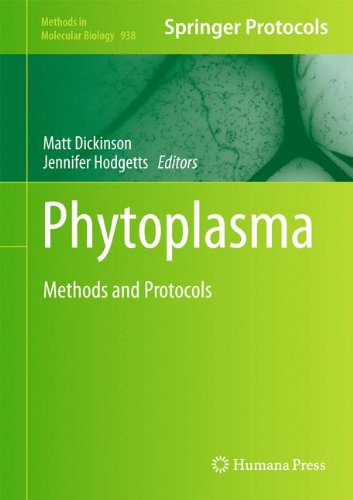

Most ebook files are in PDF format, so you can easily read them using various software such as Foxit Reader or directly on the Google Chrome browser.
Some ebook files are released by publishers in other formats such as .awz, .mobi, .epub, .fb2, etc. You may need to install specific software to read these formats on mobile/PC, such as Calibre.
Please read the tutorial at this link: https://ebookbell.com/faq
We offer FREE conversion to the popular formats you request; however, this may take some time. Therefore, right after payment, please email us, and we will try to provide the service as quickly as possible.
For some exceptional file formats or broken links (if any), please refrain from opening any disputes. Instead, email us first, and we will try to assist within a maximum of 6 hours.
EbookBell Team

0.0
0 reviewsPhytoplasmas are a group of bacteria that are capable of multiplying and causing severe diseases in a wide range of plant species and are transported between plants by insect vectors in which the bacteria can also multiply. Phytoplasmas can cause serious and devastating problems for crop plants, especially in developing countries. In Phytoplasmas: Methods and Protocols experts in the field cover topics pertinent to scientists intending to develop a research program on phytoplasmas. The volume opens with an introductory chapter on the importance of phytoplasma diseases, followed by methods for detection and diagnosis as well as techniques for separating and classifying the phytoplasmas into their different taxonomic groups and subgroups. The final chapters cover methods for separating phytoplasma genomic and plasmid DNA from plant DNA for whole genome sequencing. Written in the successful Methods in Molecular Biology™ series format, chapters include introductions to their respective topics, lists of the necessary materials and reagents, step-by-step, readily reproducible protocols, and notes on troubleshooting and avoiding known pitfalls.
Authoritative and easily accessible, Phytoplasmas: Methods and Protocols serves as an ideal guide to plant pathologists and molecular biologists aiming to set up a diagnostics facility for identifying the presence of these pathogens in plants or their insect vectors.